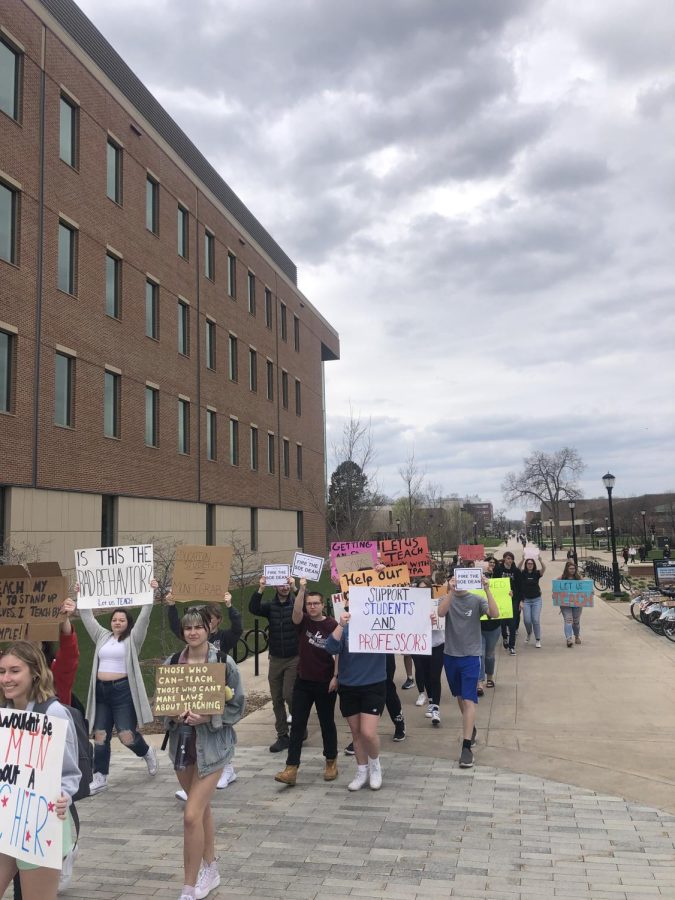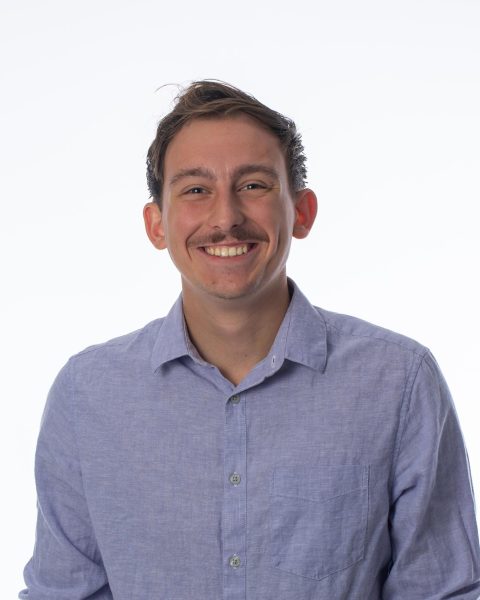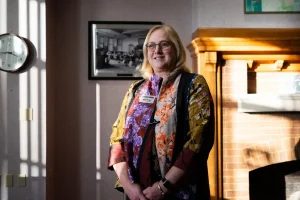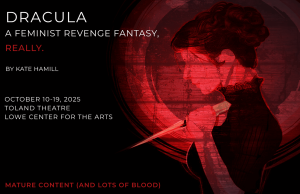“We are only names on a screen to them”: Student leaders within the School of Education speak out
November 15, 2022
As the University of Wisconsin-La Crosse nears the end of the fall 2022 semester, issues within the School of Education (SOE) remain. Conner Brekke and Carter Drost, two students within the SOE, speak up regarding these issues. Conner Brekke is a student within the broadfield social studies (BFSS) program and Carter Drost is an English education major and an SOE senator in Student Association (SA).
According to the UWL SOE website, the SOE is “an accredited institution that focuses on ensuring that all teacher candidates demonstrate knowledge, skills, and dispositions consistent with professional practice.” The School of Education is overseen by Dean Marcie Wycoff-Horn and Interim Associate Dean Adrienne Loh.
To read about any of last year’s issues regarding the SOE, the links to past The Racquet Press articles will be at the end of this article.
The Racquet Press then sat down with Conner Brekke and Carter Drost to hear about the ongoing SOE issues.
Please describe a brief history of the SOE issues and what the issues are now:
Brekke: My side of the story would be that last spring we got the email that shutdown admissions for my program (BFSS) specifically. I know that the Dean’s reintroduced the Dean’s Student Advisory Committee (DSAC), but other than that, no there really has not been any change at all.
Drost: So, briefly, UWL students in the SOE have been having issues with the administration for years. It was only last semester that things really lit up – or, so it seems to me. Now, students and administrators have begun focusing on five issues they deem to be most important: requiring iPads, requiring the EdTPA, housing for student teachers, distant placements, and one more I can’t remember at the moment.
What new tactics are students utilizing to represent themselves and the SOE?
Brekke: One way that students are representing themselves as a whole, would be the Instagram account, @UWLEdMajors. I know that’s definitely one way that students have represented themselves in the sense of like, ‘Hey this is what we believe.’ So, it’s pretty much like a unifying type of account.
Drost: To represent themselves in the past, students have formed groups; talked in front of classes; gathered support from students, faculty, and community members; and even tried passing resolutions within UWL’s shared-governance organizations. Many of these tactics still remain, but students have most recently begun working with media sources – like the Racquet Press, local news, and social media platforms – as well as chalking. There is a notable sum of students that have transferred out of UWL, as well, and this never should have been the case. But, in total, this seems to be working in the student’s favor.
Can you explain what barriers there are to graduating?
Brekke: The major one within our program (BFSS) is the lack of placements for our field student candidates. We are obviously in a teacher shortage that is going to reflect in having fewer placements, but what is the university doing to support its students that cannot get into placements, which is inevitably going to get delayed graduation? We haven’t received any ideas. Last semester when we had a meeting with the Deans, it was a whole program advisement meeting. They were asking us for solutions, rather than giving us quality solutions. Which was mind-boggling to me.
Drost: The barriers to graduation lie primarily in the bounds of a lack of field placements, but also in finances and time. SOE students must have passed two semesters of field and one semester of student teaching in sequence (they do not have to be consecutive, though), and they are required by the Wisconsin Department of Instruction (DPI). In other words, a student cannot get their license from UWL without doing the fieldwork sequence. So, when BFSS students didn’t get the placements they needed in order to graduate on time, that set up massive, unavoidable barriers for them. As for finances and time, well, we’re all college students with busy schedules and trees that don’t grow money. So, when students are required to purchase iPads and an assessment called the EdTPA, they become pressed to scramble for the money to pay for these things, on top of working more hours when scholarships aren’t guaranteed, and many students get placed up to 50 miles away.
What has the administration/SOE faculty been doing to help SOE students graduate on time?
Brekke: Well, they are in charge of making sure there are placements. I could definitely see next semester the same thing happening as last spring, where they send out an email saying, ‘Hey we are shutting down application admissions for this program.’ Because of the students I talked to, more than half the students that applied this semester for the field next semester got denied. Those students are probably going to get delayed graduation which is not okay. I get that it’s competitive, but we also need to support our students a little bit better than just saying, ‘Hey we feel there are better teacher candidates than you right now, you’ll maybe get a place next semester when you reapply’. That’s not really fair. But it is what it is and that is really sad. So, basically, to answer that question, nothing has been done to support those students.
Drost: So, faculty has always been extremely supportive of students and do everything they can to get us placed. However, they have limited capabilities in this matter. Placements all come down to two people within the administration. Now, the administration has made very clear statements about placement and the potentialities of not getting placed. I already submitted my field application, otherwise, I would quote some for you. But, if you read through the most recent applications, you cannot deny they are clear about the potential outcome of not getting placed. Also, the SOE administration has begun advertising their programs – especially those with fewer placements, like BFSS – as more competitive instead of promising all students admission and timely graduation.
What are your general thoughts about the SOE Deans?
Brekke: That’s a very loaded question and it’s hard not to put a lot of emotion into it. But at the same time, why are they relying on their students to come up with ideas and solutions? I will say that I understand their jobs as deans are difficult. I’m not saying that they are bad at their jobs. I’m just trying to raise a voice for individuals who might be too scared to say anything or don’t know how to go through it. I feel like the deans don’t really have that level of empathy. I do feel like we are only names or numbers on a computer screen to them.
Drost: There is someone in the SOE office that I would like to applaud: Michelle Sylvester, equity advisor/recruiter. She will nonstop fight for students and equity on campus. She is awesome. Any students that have the opportunity or time to meet with her, should.
What has changed since last year’s protests/chalking? Do you think that the Deans, faculty, or administration thought these issues would go away if they let you protest and chalk?
Brekke: The only change really that I have seen or noticed is the reintroduction of the Dean’s Student Advisory Committee (DSAC). But that is the extent of the change. In regards to the protests and chalking, I definitely feel like the SOE administration didn’t know how to handle it or was expecting it. It felt like they didn’t know they were doing something wrong or practicing any inequities. At least that’s how the students saw it.
Drost: The Dean’s Student Advisory Committee (DSAC) and their creations have been reinstated. Otherwise, there isn’t much to write about as far as structural and/or substantive changes go. It seems many faculty members side with the students when it comes to our issues. The administration wants everyone to be on the same page before making a big decision, but it seems for a few of the issues, they are the group that’s behind in the book.
In your opinion, what is the biggest issue in the School of Education right now?
Brekke: I think that there are a few. The biggest issue that I think is extremely inequitable, within the whole scope of the SOE, is the fact that student teachers are homeless for two weeks in May and June every year.
Drost: The biggest issue is the amount of time this is taking. Like, c’mon. For years there have been complaints, many of them are the same. Only now is a fire really lit under Morris Hall, and all because of public image. That is inexcusable to me. Listen to your students and faculty the second a problem arises, then do something about it with as much possible haste. That does not take years. I don’t need a degree to know that.
At this time, would you recommend prospective students come to UWL for Broadfield Social Studies?
Brekke: I would first ask them, ‘Would you be ok with potentially not graduating on time?’ If they are, then absolutely, because the education that you’re going to get here is the best for our program specifically. However, I would also be upfront with them and tell them there are potential socio-economic barriers like purchasing the iPad, having to pay for the EdTPA, and paying for either the Foundations of Reading Test (FORT) or the Praxis.
Drost: This question leaves me torn. I must say ‘no’ for all the reasons we are both aware of, but I love this school and I love my peers and I love the education I’ve received. That is why I try so hard to make it better for future students, but, until the current big problems are solved, students should certainly be wary of coming to UWL for education majors, despite its traditional excellence.
How can students not in the School of Education help in this situation?
Brekke: I would say just support SOE students. If you don’t know what’s going on and you would like to, follow the Instagram page, @UWLEdMajors. I would say that’s not the driving force, but that’s pretty much where all students in the School of Education can come together and you can see what we are doing to make a change.
Drost: Spread the word! And, if you have big ideas, let’s hear them! Solutions solve problems and people come up with solutions. So, more brilliant minds couldn’t hurt. I know there’s plenty on this campus.
Is there anything else you would like to add?
Brekke: We as students see these inequities, we don’t stand for them, we want change to happen. We understand that change takes time too. I remember in elementary school going to the computer lab one day for an activity, and I remember my teachers always saying, ‘You make sure you leave this place better than how you found it’ and that is a driving message that I keep playing in my head. Like when I feel like I can’t do it today or I feel like what I’m doing is pointless, I just keep telling myself that I want to leave students who are behind me in the program, or who are still in K-12, I want these issues that I face currently, changed before they get here. That way future students don’t struggle with their mental health due to requirements by the SOE.
Drost: Right now, my current objective is to solve one problem at a time, starting with iPads. They have got to go. Then, we focus on the next thing, which is looking to be the housing situation. People deserve homes, especially when they are practically working for the state without pay – did you know student teachers aren’t able to freely work during their student teaching semester? They have to tell the SOE if they have a job. Isn’t that messed up?
To read about last year’s issues regarding the SOE, click any of the links below:
“Everything I had worked and paid for was for nothing”: School of Education students speak out
Student Association meets with SOE Dean Wycoff-Horn to address concerns raised by SOE students
“UWL administration is killing an already dying field”: School of Education students host protest
Letter to the Editor: School of Education inequity
Letter to the Editor: School of Education students seek clarity from administration







